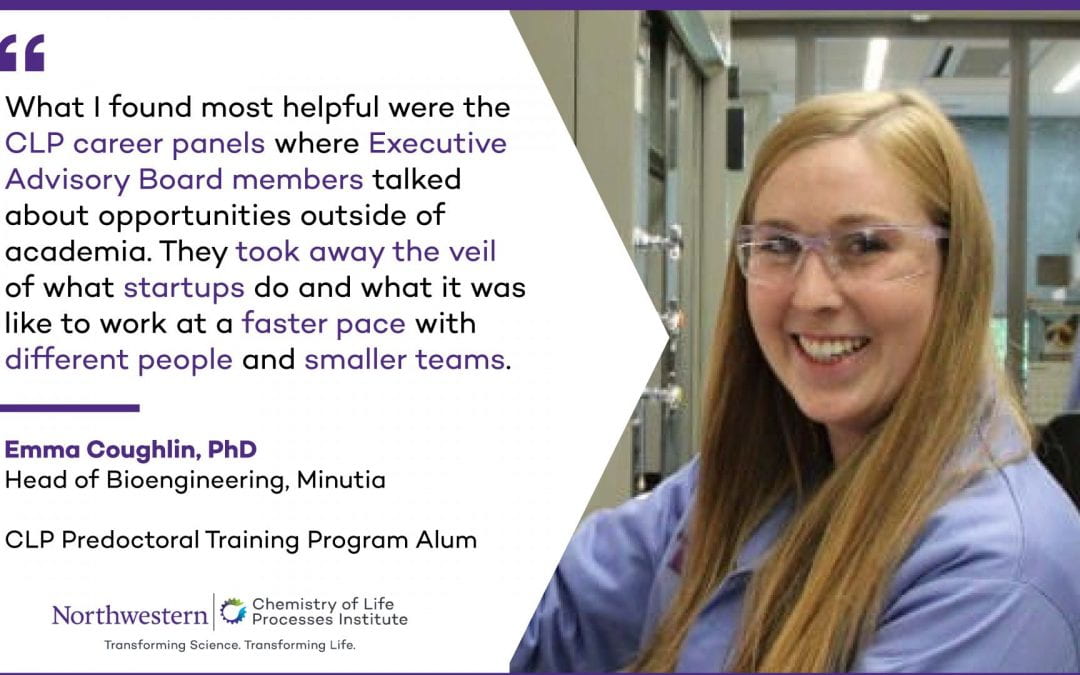Meet Emma Coughlin, PhD, head of bioengineering at biotechnology startup Minutia. Emma is a CLP Predoctoral Training Program alum and graduate of Northwestern’s Interdisciplinary Biological Sciences Program. Her CLP Training Program Preceptors were Thomas Meade and Teri Odom.
What was the focus of your pre-doctoral research?
Initially, I worked with Professor Meade to develop a theranostic that combines an imaging contrast agent with a therapeutic drug so you can diagnose and treat at the same time. For my thesis project with Professor Teri Odom, I focused on developing a nanoparticle-based cancer vaccine—a small part of a large, multi-lab grant housed within the International Institute for Nanotechnology (IIN).
What drew you to your first job out of graduate school and what are you doing now?
What pulled me toward working for a startup was the mix of business and science. You get the industry experience along with the bench work of academia. We are in an incubator space. It’s a shared resource lab. Just like Northwestern has core facilities, there are similar things here so that you don’t have to purchase all the equipment yourself.
I’m still working on nanoparticles, but transitioning over to a sensor, instead of a therapeutic. The initial product is a sensor for people with diabetes that would readout different chemical signals within the body that you could check multiple times a day.
How did CLP support your journey?
What I found most helpful were the CLP career panels where Executive Advisory Board members talked about opportunities outside of academia. They took away the veil of what startups do and what it was like to work at a faster pace with different people and smaller teams.
What was a highlight of your time at Northwestern?
I got involved with ComSciCon, a communicating science conference for graduate students. It’s about trying to communicate to others, realizing that everything you say doesn’t necessarily mean anything to other people because you’re in such a small bubble. When you talk to people in your lab, they know exactly what you’re talking about, so you don’t have to explain anything, but, when you start talking to people who are not in your lab, even other scientists, you realize that you are using a lot of jargon. I really enjoyed that because it opened up my eyes to different ways of communicating and making sure that what I’m saying is being interpreted correctly. I was introduced to it by an older graduate student and then I ended up organizing our regional chapter for two more years. It was very eye-opening and interesting to learn the organizational aspects as well.
by Lisa La Vallee

